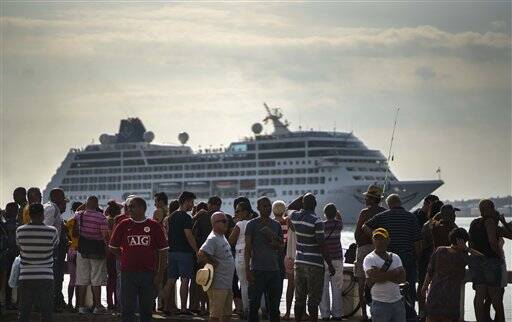In literature and cinema, when survivors of a sinking ship or a plane crash huddle in a rubber raft in the ocean surrounded by sharks, a common theme is the interdependence of people who were once strangers. But misfortune is not a prerequisite for solidarity. Indeed, the great reward of foreign travel has long been encounters with strangers not like ourselves who may become lifelong friends.
But travel is changing. For Norwegian Cruise Line’s the Haven, the goal is to identify top-of-the-line customers and, for as much as $10,000 a week, to pamper them with special amenities like a full-time butler and house them in a posh “city within a city,” a suite with two-story views of sunsets over the waves, a private swimming pool and the guaranteed company of 275 elite “people like themselves.” No danger of rubbing shoulders with the 4,000 people in $1,000-a-week cabins down below. Enter the auditorium and a red ribbon ropes off the best seats for the elite guests.
The top 1 percent of American households now control 42 percent of the nation’s wealth, while the middle class has struggled to catch up since the end of the Great Recession. But the travel industry has marketed exclusivity: For a price, your group descends the gangway first when you arrive in port. Americans were once proud that “created equal” meant equal treatment and equal opportunity. Today we have slipped back a century to the social stratification that separated the classes on the Titanic—and we know what happened to them.








